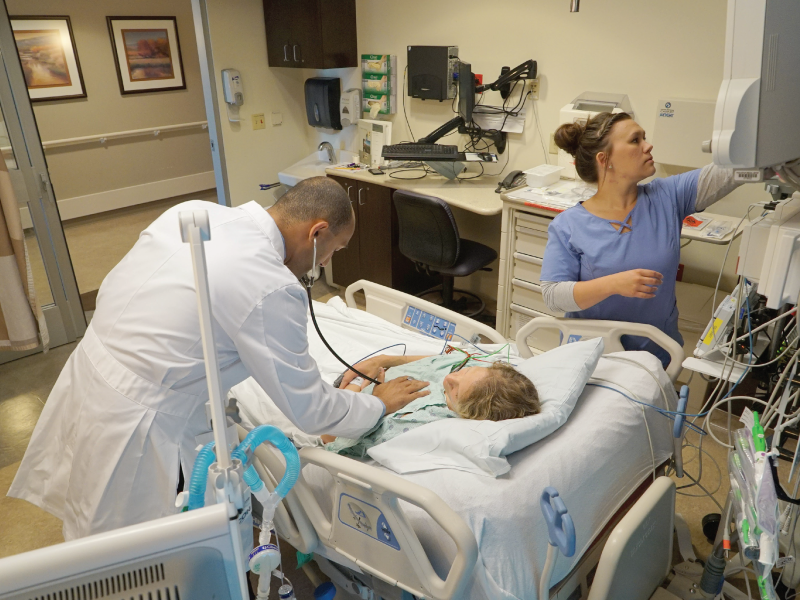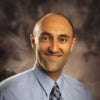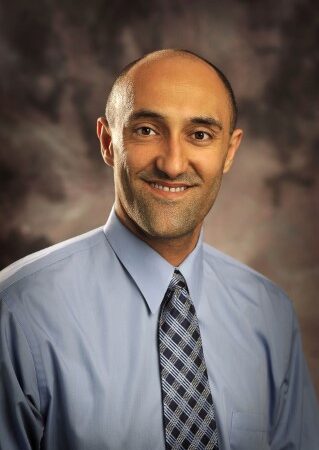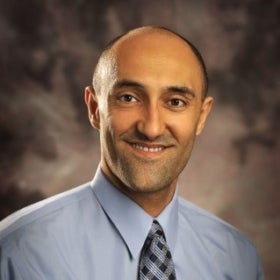October 4, 2017
Answering the Call of Healthcare

Almost every time, this hip hop song makes me cry. It’s called, “I Used to Love H.E.R.,” by Chicago-native rapper, Common. It’s a pretty cool metaphoric story about a girl with whom he was infatuated growing up. The song does not bring tears to my eyes because the story is particularly beautiful or emotional. The tears well up because of the emotional context of the song. It was the fall of 1994. I was a junior in college, and I used to listen to this song all the time. It was one of my absolute favorites. It was at the very same time that I applied to medical school. My chances of getting in were quite slim, but I did it anyway. Ever since I was a little boy, I have only wanted to be a doctor. Yes, I was a biomedical engineering major, but it was only because I wanted a back-up in case I didn’t get into medical school.
Living my dream
Obviously, 23 years later, I was successful in getting in. But whenever I hear this song now, it takes me back to that uncertain time, when I prayed incessantly to get accepted. And when I reflect over the fact that I am now both a doctor and working in the best physician-led organization in the country, tears of tremendous gratitude well up. I am truly living my dream. Today, there is so much that makes being a doctor, nurse, or advanced practice provider difficult: the long road of school and residency, the long hours, the ever-present threat of malpractice litigation, the seemingly relentless regulation of what we do and how we do it. We have to deal with cumbersome EMRs that make our day even longer than it already is. We have to contend with an annoying, sometimes faceless Physician Advisor (like me) telling us, “There is not enough medical necessity to make Mrs. Smith inpatient. Change to Observation.” We have to specify to the clinical documentation specialist, “What kind of heart failure? Systolic? Diastolic? Acute? Chronic?” What level should I bill this encounter? Wait, what? There is not enough medical necessity for critical care time?
Remember why we went into healthcare
That’s on top of the sleep deprivation, multiple pages and phone calls, annual compliance training, the increasingly expensive board certification and re-certification process and the requirement to continue getting CMEs/CEUs. In 2017, being a healthcare provider is becoming more and more about regulation and bureaucracy and less and less about why we went into healthcare in the first place: taking care of patients. Yet, we need to stop, take a breath, and reflect. When I applied to medical school, I was one of about 6,000 applicants for 120 spots. And they chose me. True, it was off the waiting list, but still, they chose me. The same goes for you, dear reader. Of all the people they could have chosen for your class, they chose you. They saw something special in you to answer the calling of healthcare. We cannot take that for granted Could we make more money – way more money – doing other work? Yes. Could we have better lifestyles doing other work? Yes.
We’re entrusted with their care
But, let’s take this into consideration: so many times, especially in this day and age, the patients admitted to the hospital are sick – very sick. In the ICU, it seems sometimes that they are actively trying to die. And when they get entrusted into our care, we get to work: examining them, ordering tests, performing procedures, interpreting the tests we just ordered and calling on consultants to help us manage the patients. And, thankfully, we are successful most of the time. Isn’t that amazing? Isn’t it amazing to see someone – truly on death’s doorstep when they first come in – walk out of the hospital feeling better? Isn’t it amazing to see someone come into the ICU with multi-organ failure and walk out safe and sound, smiling and grateful? Complete strangers trust us with their most precious commodity: their very lives. Isn’t that feeling truly indescribable? In what other occupation do we get to do this? Of course, we all have the difficult patient who lies to us and doesn’t help us make them better; we all have the patient who doesn’t follow our instructions and then comes right back to the hospital even more sick; we all have the patient who tests our patience and compassion. We all have many of these types of patients.
Every day gives us a chance to help someone get better
Yet, we keep coming back to the hospital day after day after day. True, we have to come back, otherwise we will be out of work. Still, we also come back because there is something deep inside us that wants to come back. Every day gives us a chance to help someone new get better, feel better, and walk out of the hospital safe and sound. Listen to what our own Lynn Purdy, VP of Communications and Marketing, had to say about her father’s recent illness: “Dad’s improvement is nothing short of miraculous, and I was reminded of this over the past month. It’s inspiring to see how caring people can make such a difference in a person’s life. It takes a village.” In what other occupation do we get to do this? Our work is hard, and there is no indication that it is going to get any easier. There is so much uncertainty in healthcare, and this brings tremendous anxiety. But, we have to remember one thing: our medical schools, our nursing schools, our PA schools chose us. They all saw something in us that made them take a chance on us, because they saw that we could become amazing healers for the sick. This is no small thing, and for me – at least – I am eternally grateful. And it is why that hip hop song makes me cry.



